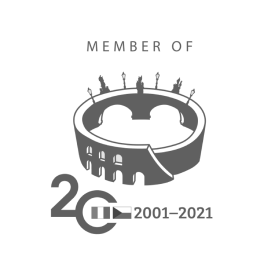
THE HOUSING CRISIS IN PRAGUE: HOMEOWNERSHIP MORE OUT OF REACH THAN EVER
Buying an apartment in Prague has become an almost impossible goal for many residents. According to the latest report by developer Central Group, as of 2025, it now takes an average of 15.5 years of gross salary to afford a standard 70-square-meter apartment in the Czech capital. That’s a sharp increase from 14.5 years just six months ago, and an even bigger jump from the 10.5 years it took in 2015. This makes Prague the least affordable city for housing in Central Europe, surpassing even Bratislava (14.8 years), Munich (11), Warsaw (8.5), and both Berlin and Vienna (each under 8). These figures point to a growing structural problem that is locking even high-earning professionals out of the urban housing market.
SKY-HIGH PRICES, STAGNANT WAGES
What makes the situation worse is the soaring cost of new apartments. In early 2025, the average price per square meter in Prague hit CZK 168,000—a 10% increase from the previous year. This means a standard 70 m² flat now costs nearly CZK 11.76 million. Meanwhile, the average gross monthly salary in Prague is around CZK 63,000. Even under the unrealistic assumption that someone could save 100% of their income, it would still take over 15 years to afford a typical home. For the average worker—or even a well-paid professional—buying a home is becoming an increasingly unrealistic goal, undermining long-term financial stability and social mobility for many.
THE ROOT OF THE CRISIS: RED TAPE AND SHORTAGES
The problem isn’t just growing demand it’s the chronic shortage of available housing. A key factor is the slow, overly complex permitting process for new construction. It often takes years to get the necessary approvals, delaying projects and driving up construction costs. According to experts, if the permitting process were faster and more efficient, prices for new apartments could drop by at least 15%. Yet political inaction and administrative bottlenecks remain unresolved, causing long delays and discouraging developers. Unfortunately, bureaucratic hurdles continue to stall projects, making new housing scarcer and more expensive. As a result, Prague’s housing market remains imbalanced, with demand vastly outstripping supply and little hope for short-term improvement.
SALES ARE UP, BUT HOMES AREN’T ENOUGH
Ironically, the first quarter of 2025 saw a 60% surge in apartment sales the best start to a year in 15 years. But this rebound doesn’t reflect a truly healthy market. In fact, the total number of available apartments continues to fall as demand intensifies. Developers say that more than 150,000 new apartments are currently stuck in the planning phase, unable to move forward due to permitting delays and municipal bureaucracy. The bottleneck is particularly severe in high-demand districts like Prague 5 and Prague 9, where construction projects remain frozen. Without more housing being built and brought to market, even record sales numbers can’t solve the supply shortage meaning prices will likely continue to climb, pushing affordability even further out of reach.
WHAT’S NEXT? POLICY DECISIONS WILL DECIDE THE FUTURE
The outlook for Prague’s housing market remains grim unless bold political action is taken. Without reforms to speed up the permitting process, incentivize construction, and increase transparency in urban planning, homeownership will remain out of reach for much of the population. The current crisis isn’t just the result of market forces—it’s deeply tied to policy decisions and regulatory failures. Unless these are addressed, a whole generation of Prague residents may be forced to rent indefinitely, move further out from the city, or abandon the dream of owning a home altogether. The solution lies in the hands of lawmakers, who must act swiftly to restore balance and fairness to the housing market.
Sources: https://www.expats.cz/




